Our Editors
Editors in Chief
-
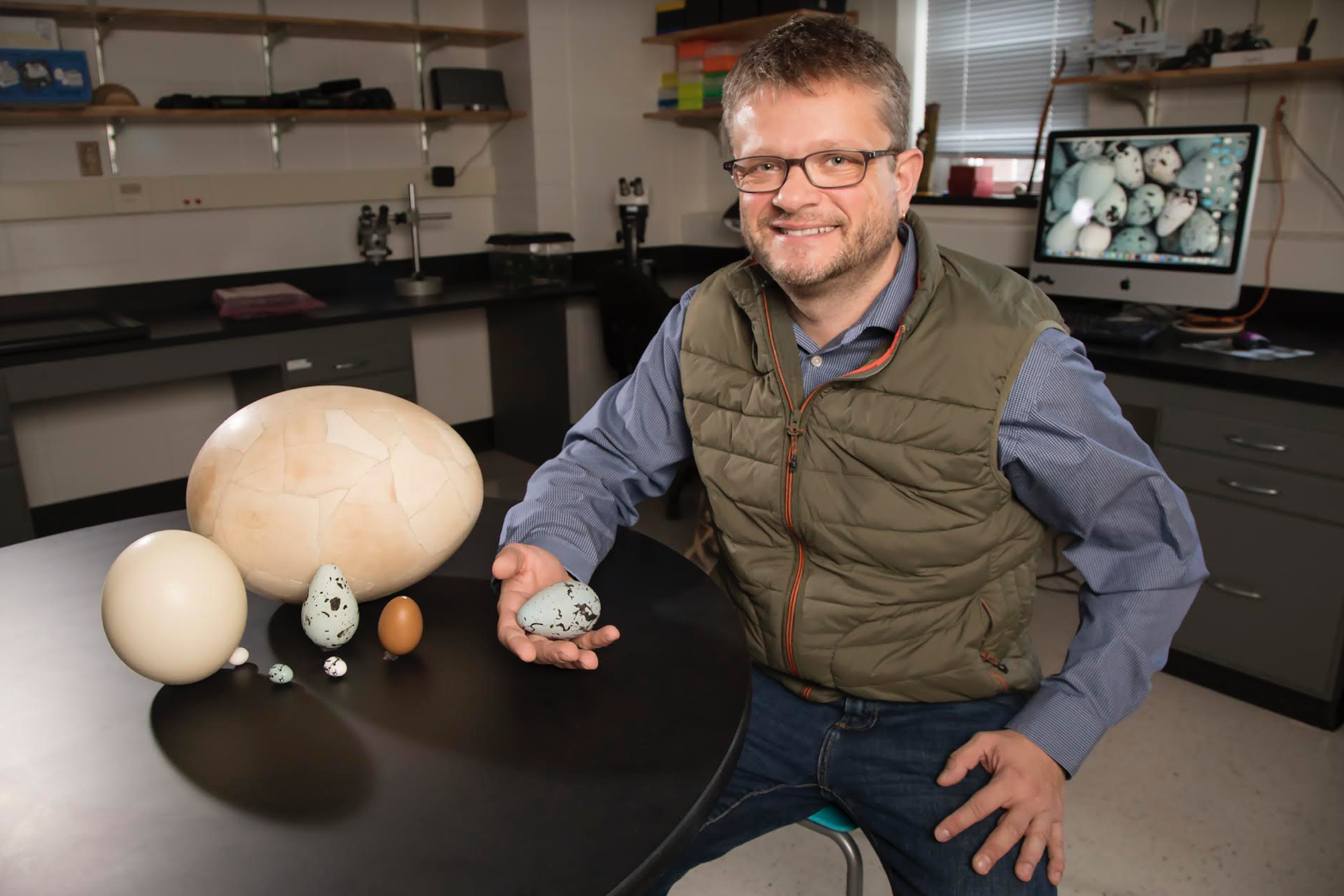
Mark E. Hauber
Graduate Center of CUNY
Professor, Biology, Psychology
Executive Director ASRC
RESEARCH INTERESTS
Social Recognition Systems Mate Choice and Pair-bonding Reproductive Behaviors Host-parasite Interactions Species Recognition Ornithology
Research in the Hauber research group (@cowbirdlab; www.cowbirdlab.org) focuses on the evolution of avian social recognition systems. Shifting gears between behavioral, developmental, physiological, and molecular tools, we study the social and genetic consequences of species recognition in avian brood parasites, such as cuckoos, cowbirds, and whydahs, and their hosts. Obligate brood parasitism in birds provides an exciting model system for the evolution of social behaviors because, unlike 99% of bird species, they lay their eggs into nests of other species and are reared by foster parents. Several other projects in the lab tap into national and international collaborations throughout the world of birds, including the unique and often endangered sea- and shorebird fauna of New Zealand, as well as mammals, spiders, and other organisms from around the globe.
I am currently serving as associate dean for the sciences and as executive director of the GC CUNY’s Advanced Science Research Center (ASRC); I am also the co-editor-in-chief of the Journal of Field Ornithology and an elected fellow of the American Ornithological Society, the Animal Behavior Society, and the American Association for the Advancement of Science.Themes: brood parasitism, recognition systems
-

Rafael Rueda-Hernández
Klamath Bird Observatory
I am a Mexican Ornithologist with diverse research interests, spanning from the evolutionary aspects of molt to the migratory connectivity of Nearctic-Neotropical migratory species. Throughout my academic career, I have gained firsthand experience regarding the significance of early-career scientists in the advancement of Field Ornithology in the Neotropics. I am both committed and enthusiastic about joining the editorial team to contribute to the growth of the Journal.
Themes: Molt; Breeding Biology; Urban Ecology; Wintering Ecology
Editor block – please see right sidebar for options.
Subject Editors
-
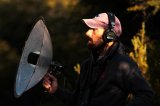
Juan I. Areta
Laboratorio de Ecología, Comportamiento y Sonidos Naturales (ECOSON), IBIGEO-CONICETI am a Neotropical field ornithologist based in NW Argentina. I have broad interests in bird ecology, systematics, migration and bioacustics.
Themes: bird song, bamboo-specialist birds, integrative taxonomy, biogeography, Neotropics
-

Lauryn Benedict
University of Northern ColoradoLauryn Benedict is a Professor of Biological Sciences at the University of Northern Colorado. She studies the form, function, and evolution of song (and other communication signals) among male and female birds.
Themes: communication, signaling, song, behavior
-
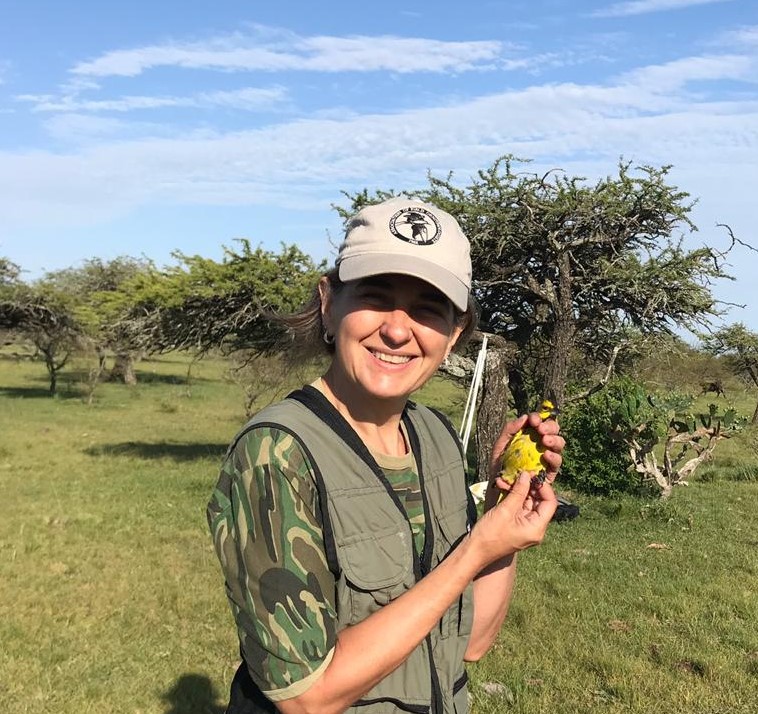
Carla S. Fontana
UFRGS – Ecology Department, UFSM Graduate Program in Animal BiodiverityI am interested in natural history and conservation. I have been answering basic questions on neotropical birds’ life histories and studying other ecological and conservation issues.
Themes: Breeding Biology of Neotropical Birds, Conservation Ecology, Southern south American Grassand Birds, Natural History and Urbanization effects on bird populations, Scientitic Collections, Field Ornithology
-
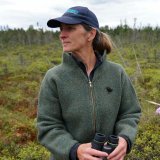
Michale Glennon
Paul Smith’s College Adirondack Watershed InstituteMichale Glennon serves as the Science Director of the Paul Smith’s College Adirondack Watershed Institute. She is interested in the effects of land use management on wildlife populations and is engaged in research ranging from issues of residential development to recreation ecology to climate change. Most of this work uses birds as a tool for understanding threats to the Adirondack region. She is an ecologist and previously spent 15 years as the Director of Science for the Adirondack Program of the Wildlife Conservation Society. At AWI, Michale works to support and help shape the scientific research program, provide high quality research opportunities for students, and distribute and champion AWI’s work in order to enhance the use of science in the management and stewardship of the natural resources of the Adirondack Park.
Themes: Adirondack Park, community ecology, exurban development, boreal birds, recreation, occupancy modeling
-

Jeffrey P. Hoover
University of Illinois, Prairie Research Institute, Illinois Natural History SurveyI am an avian ecologist and study birds (particularly migratory songbirds) in upland and bottomland forest ecoystems and use observational and experimental field studies to address ecological questions and conservation issues. A primary focus of my research has been determining how habitat features and landscape composition affect nest predation and brood parasitism in breeding birds. My work in bottomland forests has also documented how hydrological restoration of forested wetlands affects breeding bird communities. Another major focus of my research has been studying brood-parasite/host interactions and their ecological and evolutionary ramifications. Finally, my long-term work on Prothonotary Warblers has addressed behavioral decision rules for site fidelity, natal philopatry and first-year survival, density dependent reproductive output, and the effects of a warming climate on the timing of breeding.
Themes: nesting ecology, nest predation, brood parasitism, breeding site fidelity, natal philopatry, survival, forest fragmentation, lifetime reproductive success
-
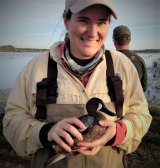
Terri J. Maness
Louisiana Tech UniversityDr. Maness is an Associate Professor and Environmental Science Program Coordinator at Louisiana Tech University.Her research group attempts to explain the structure and function of organisms in terms of their ecology and evolutionary history. Our approach is integrative, encompassing behavioral ecology, conservation, demography, endocrinology, immunology, and toxicology.
Themes: avian health, conservation physiology
-
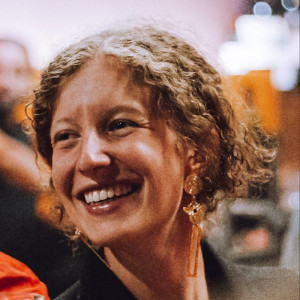
Lisandrina Mari
University of JyväskyläI am a Postdoctoral researcher and MSCA alumna in the Environmental Physiology group at the University of Jyväskylä, Finland. My research focuses on 1) the impacts of anthropogenic stressors (pollution, urbanization) on the behavior, cognition, and physiology of birds, 2) parental environment effects, and 3) co-evolution of brood parasites and their hosts.
Themes: Behavior; urban ecology; ecotoxicology; brood parasitism; parental effects
-
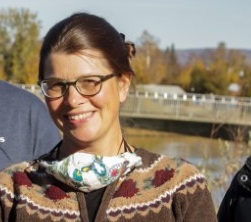
Rebecca L. McGuire
ABR, Inc., Environmental Research & ServicesRebecca McGuire’s work has focused on Arctic-breeding birds, including research on factors influencing population trends, reproductive biology, and migratory movements and connectivity. She has published papers on movements, population trends, and breeding biology of eiders, shorebirds and gulls. Themes: Breeding biology, avian ecology, population analysis, migratory connectivity
Themes: Avian ecology; Migration ecology
-
Ann E. McKellar
Environment and Climate Change CanadaI am a Research Scientist within the Wildlife Research Division of Environment and Climate Change Canada and Adjunct Professor at the University of Saskatchewan. I specialize in the full life cycle biology and conservation of migratory birds in prairie ecosystems, with a primary focus on waterbirds and shorebirds. I have a particular interest in using new technologies (drones, light-level geolocators, satellite tags, Motus Wildlife Telemetry) to track and monitor migratory birds.
Themes: avian ecology, migratory connectivity, prairies, species at risk, tracking technology
-
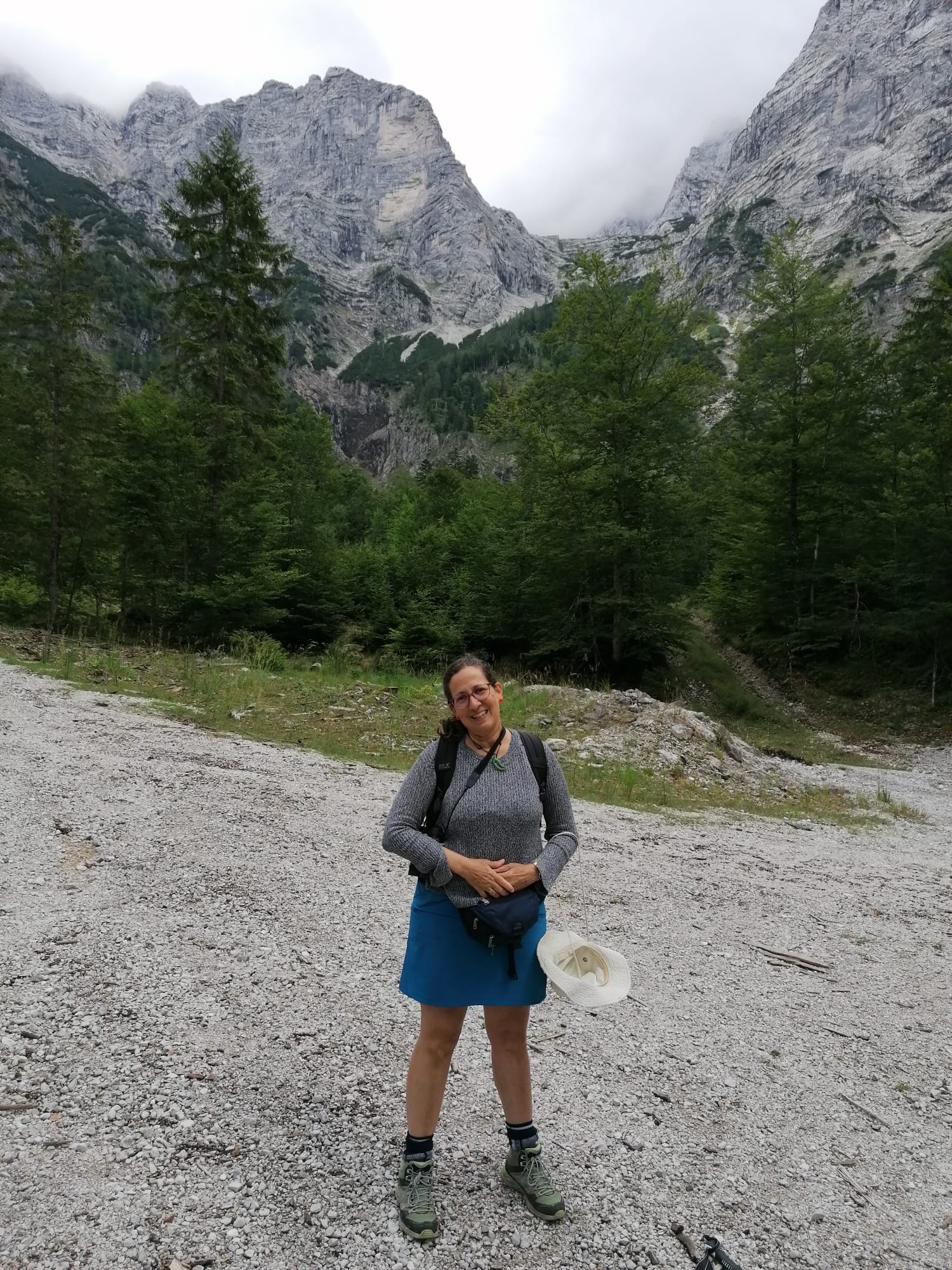
Angela Schmitz Ornés
Zoological Institute and Museum, AG Vogelwarte, Universität GreifswaldAngela Schmitz (Schmitz Ornés) currently works at the AG Vogelwarte, Institute of Zoology, University of Greifswald. Angela does research in animal communications, reproductive behaviour, and ecology. She is currently interested on avian breeding ecology and the function of avian egg morphology. Her current focus is on different rail species, European cranes (Grus grus), Black headed gulls, Common terns, and other colonial waterbirds.
Themes: breeding ecology; egg morphology; colonial waterbirds
-
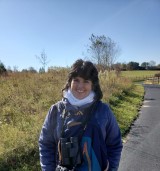
Maria A. Pacheco
Temple UniversityI am an Assistant Professor (Research) at the Department of Biology/Institute for Genomics and Evolutionary Medicine (iGEM) from Temple University. My academic and professional interests are avian ecophysiology and evolutionary biology. My research has focused on understanding the evolution of haemosporidian parasites and their hosts, especially birds. I am applying phylogenetic and molecular clock methods to understand host switches and the radiation of avian haemosporidian parasite groups. I am also interested in the rate and mode of evolution of the mitochondrial genome in birds and their haemosporidian parasites.
Themes: Avian Physiology; Molecular Evolution; Avian Parasitology
-

Caroline Poli
Florida Fish and Wildlife Research InstituteI am an early career scientist and Lead of the Avian Research Program at Florida Fish and Wildlife Conservation Commission. My research focuses on linking animal movement to demographic outcomes, and conservation of waterbirds including the critically endangered snail kite.
Themes: conservation, movement ecology, landscape ecology, dispersal, demography, populations
-
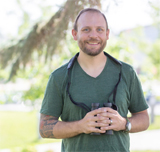
Matthew Reudink
Department of Biological Sciences, Thompson Rivers University, Kamloops, BC, CanadaI am a Professor in the Department of Biological Sciences at Thompson Rivers University in Kamloops, BC, Canada, located on the traditional lands of the Tk’emlúps te Secwépemc within Secwepemcúlucw, the traditional and unceded territory of the Secwépemc. I study the evolution and behaviour of birds, with particular emphasis on the evolution of plumage colouration.
Themes: Evolution, behaviour, sexual selection, colour, migration
-
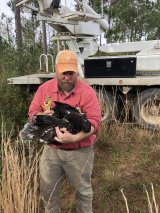
Scott A. Rush
Mississippi State UniversityScott Rush is an Associate Professor in the Department of Wildlife, Fisheries & Aquaculture at Mississippi State University. He received his Ph.D. from the University of Georgia (2009) where his research focused on indicators of ecosystem properties within northern Gulf of Mexico tidal marshes. His post-doctoral training, completed at The University of Windsor’s (Windsor, Ontario) Great Lakes’ Institute for Environmental Research, addressed changes in energy mobility through Great Lakes ecosystems. Now at Mississippi State University, Scott and his students continue to work within an expanding research framework incorporating novel technologies and chemical tracers to address features of landscape and trophic ecology relative to wildlife populations. Some current work strives to understand the effects of climate change on avian population regulation, and management of ecological communities supporting threatened and endangered species, especially within the context of human-wildlife conflicts.
Themes: Community ecology; ecology and conservation of tidal systems; human-wildlife conflict; urban wildlife ecology; wildlife management
-

Rachael C. Shaw
Victoria University of WellingtonRachael Shaw is a behavioural ecologist who studies the causes and consequences of individual variation in cognitive ability in wild birds. She is based in Wellington, New Zealand, where she researches New Zealand’s endemic avifauna.
Themes: animal cognition;behavioural ecology;cognitive ecology;cognitive evolution
-

Jen Smith
Caesar Kleberg Wildlife Research Institute, Texas A&M KingsvilleI am an Assistant Professor in Quail Ecology and Management at The Caesar Kleberg Wildlife Research Institute. My lab’s research takes a mechanistic approach to assess the effects of land-use and management decisions on the behavior, space use, and demography of birds, with a focus on quail. I am also interested in the human dimensions of wildlife which influence, and are influenced by wildlife management and conservation behaviors. Overall, my objective is to conduct research that informs policy and promotes sustainable land uses that consider the conservation of wildlife and human well-being.
Themes: avian ecology, conservation, global change, human dimensions of wildlife, urban wildlife ecology, wildlife management
-

Michal Šulc
Institute of Vertebrate Biology, Czech Academy of SciencesI am interested in the behavioural and evolutionary ecology of birds. I am particularly fascinated by inter- and intra-specific brood parasite-host interactions in the common cuckoo and the barn swallow study system. I video-record parasitism in situ at host nests and follow individuals by using RFID tags and readers. For studying the impact of visual signals (e.g. mimetic eggs of brood parasites) to host behaviour (e.g. egg recognition), I use up-to-date methods that simulate avian visual perception of colours and patterns. These include e.g. spectrometry, UV photography and modelling of avian vision.
Themes: behaviour, cognition, brood parasitism
-
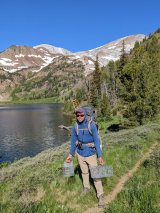
Ben J. Vernasco
Washington State UniversityI am an integrative organismal biologist fascinated by the causes and consequences of variation in fitness-related traits and behaviors. I use an integrative approach to address applied and fundamental ecological and evolutionary questions in both free-living and captive animals.
Themes: telomeres, endocrine, testosterone, glucocorticoids, aging, behavioral ecology, lek, manakin, migration, finch, nomad, alpine, metabarcoding, post-fledgling survival, behavioral endocrinology, stress
Spanish Translators
Juan Pablo Gomez
Universidad del Norte, Barranquilla, Colombia
Fernando González García
Instituto de Ecología, A.C., Xalapa, Veracruz, México
Rodrigo Lorenzón
Laboratorio de Biodiversidad y Conservación de Tetrápodos, Instituto Nacional de Limnología (INALI-CONICET-UNL), Santa Fe, Argentina
María Soledad Liébana
Colaboratorio de Biodiversidad, Ecología y Conservación (ColBEC), Instituto de Ciencias de la Tierra y Ambientales de La Pampa (INCITAP)- CONICET / FCEyN – UNLPam, Argentina
Víctor Gamarra-Toledo
Área de Ornitología, Museo de Historia Natural, Universidad Nacional de San Agustín de Arequipa (MUSA)
Mariana Villegas Bilbao
Instituto de Ecología, Universidad Mayor de San Andrés, La Paz, Bolivia
María Emilia Rebollo
Colaboratorio de Biodiversidad, Ecología y Conservación; Facultad de Ciencias Exactas y Naturales; Universidad Nacional de La Pampa; Argentina
Cristian Gorosito
Centro de Investigación Esquel de Montaña y Estepa Patagónica (CIEMEP), Consejo Nacional de Investigaciones Científicas y Técnicas (CONICET) – Universidad Nacional de la Patagonia San Juan Bosco (UNPSJB), Esquel, Chubut, Argentina
Editorial Assistance Program
Daniel M. Brooks, EAP Coordinator
Department of Vertebrate Zoology,
Houston Museum of Natural Science,
One Herman Circle Drive,
Houston, Texas 77030-1799, USA
(phone +1 713-639-4776), e-mail dbrooks@hmns.org.
Journal of Field Ornithology is the quarterly publication of the Association of Field Ornithologists.
JFO is now Open Access and Published at Resilience Alliance.
